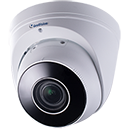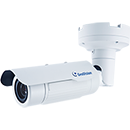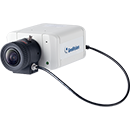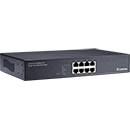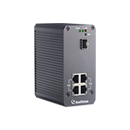
Cross-Platform Sharing
The large number of social media platforms makes successful marketing challenging. In order to successfully get a message across, cross-platform sharing is necessary. Rachel Neiman, Director of Marketing Communications at Briefcam explained, “Cross platform sharing can bring out the strength of each platform. For example, Briefcam, as a company in the video field, has a lots of content on youTube_ but it needs to be shared with the relevant audience and they are not on youTube. For that reason, Twitter is most beneficial to us for posting videos from our youTube channel, or for making quick announcements by sharing links to news stories, press announcements, or pages from our company website. Other platforms reach out to specific audiences: new players, like Facebook and Telegram, speak to a young audience. If you are active in in the Middle East, you’ll want to sign up for google+, if you have a very visual product, get an Instagram account. But in all cases, the idea is to share acroos platforms.”
First step: clear strategy
Choosing to go on social media in preparation for the future or because “everyone else is there” is risky. Without clear priorities and planning such a move will be a waste of resources. “The most important thing companies should do before entering into the social media world is to have a clear strategy. Think about what you would like to accomplish and then execute,” said Therese Hume, Digital and Social Media Marketing Manager at Oncam Technologies. “There are many key values that social media delivers — ranging from increased traffic to your website, increased brand awareness, direct contact with your partners and customers, as well as real-time news and updates. However, the most important aspect is being involved in the conversation — that is, having a view or contributing to a discussion that serves to position you as a subject-matter expert or thought leader.”
Platform of choice
With so many available platforms for social media and information sharing, it is important that companies focus on the ones that have the most relevance and impact for them.
“LinkedIn is the platform of choice for dealers and integrators. It is definitely where we have the most interaction,” said Anna Boudinot, Content Manager for Hikvision USA. “Twitter is also valuable because it allows us to quickly disseminate short bursts of information — it’s a place where people go to get news. Facebook is important simply because one third of the world’s population has a Facebook account! It’s too significant to neglect. We’ve also found a lot of success using youTube to share information about products, solutions, and the company itself. Sometimes the best way to tell a story, especially from the perspective of a video surveillance manufacturer, is through video.”
However, the choice of the platform depends mostly on the target audience. “It really depends on the regions you are operating in,” said Hume. “For example, the United States and Europe tend to focus on LinkedIn, Twitter, and youTube, as these are the most used platforms. For other regions such as Turkey and Middle East, the focus is on Facebook, as 85 percent of the population use this platform every day to get their news and updates. It’s important to be adaptable, but also to make sure that your messaging is clear and concise across all of these platforms.”
LinkedIn was no doubt the platform of choice for our interviewees. “LinkedIn is by far the most effective social media platform,” said PureTech’s Olson. “LinkedIn‘s groups feature provides a wide array of forums to share latest product developments, discuss issues, and share learnings. LinkedIn has been successful for the security community because it provides a central platform to create engagement around the problem, versus a specific product. Members of the value chain (e.g., manufacturer, integration, distributor, consultant, end user) can now share their product capabilities, experiences, or problems within this platform.”
Social Media Integration in Sales Process
Social media can be used for more than marketing_ it can be used as a communication tool between companies and partners and clients. “Social media allows our staff to directly connect with contacts following trade shows, industry conferences, partner events, and other meetings. Social media makes it easy to keep in touch over time. Sometimes a quick question may not worth an e-mail but it may seem worth a quick ping via Facebook & LinkedIn. With social media, contacts are more approachable and the frequency of communication typically increases compared to that of more traditional exchanges via e-mail or telephone conference. In addition, social media channels are also viewed as a part of the sales process. Our sales staff are trained to use platforms like LinkedIn and Twitter, just like they would use the phone or e-mail. It’s an additional channel for establishing contact with a customer and it can be used for generating potential sales leads,” said Lena Heden.
Engagement is key
Engagement is the key term for social media marketing and it’s “holy grail.” It is the process of involving the readers in a conversation as opposed to turning social media into a broadcast channel where users only read content passively.
“It is important to listen to social media conversations and to then chime in by adding value to the discussion. Instead of speaking about products directly it is important to speak about challenges and problems and how they can be overcome or solved. This will often include a software partner and systems integrator. Social media conversations are never one-on-one. Many more will follow a conversation than post a comment. It is therefore important to invite others to join the discussion, bring in other viewpoints, and raise new questions,” Axis’ Heden suggested.
Despite its current low adoption rate in the security industry, it is safe to assume that it will pick up eventually. People rely on the Internet more and more as a source of information and social media is a natural complement to it. However, to be successful in this medium, companies need to choose the right platforms and also the right people to do the work. Being internet-savvy is not enough; social media marketers should also possess domain knowledge, without it their ability to meaningfully engage their audience will be low and their posts will be irrelevant and even damaging to the company.
Who uses social media?
Security manufacturers have certainly been the first adopters of social media within the security industry. “More and more manufacturers are practicing content marketing methods by providing useful information on the company’s websites and marketing the content via social media,” explained Eric Olson, VP of Marketing at PureTech Systems. “Right behind the manufacturers, are the consultants and integrators, which are actively using social media, especially LinkedIn, to search out solutions and learn about the latest technology in an interactive fashion. End users are still at the beginning stages of recognizing the value of engaging in social media focused on security.”
“More and more manufacturers are practicing content marketing methods by providing useful information on the company’s websites and marketing the content via social media,” explained Eric Olson, VP of Marketing at PureTech Systems.
Source: a&s Magazine
